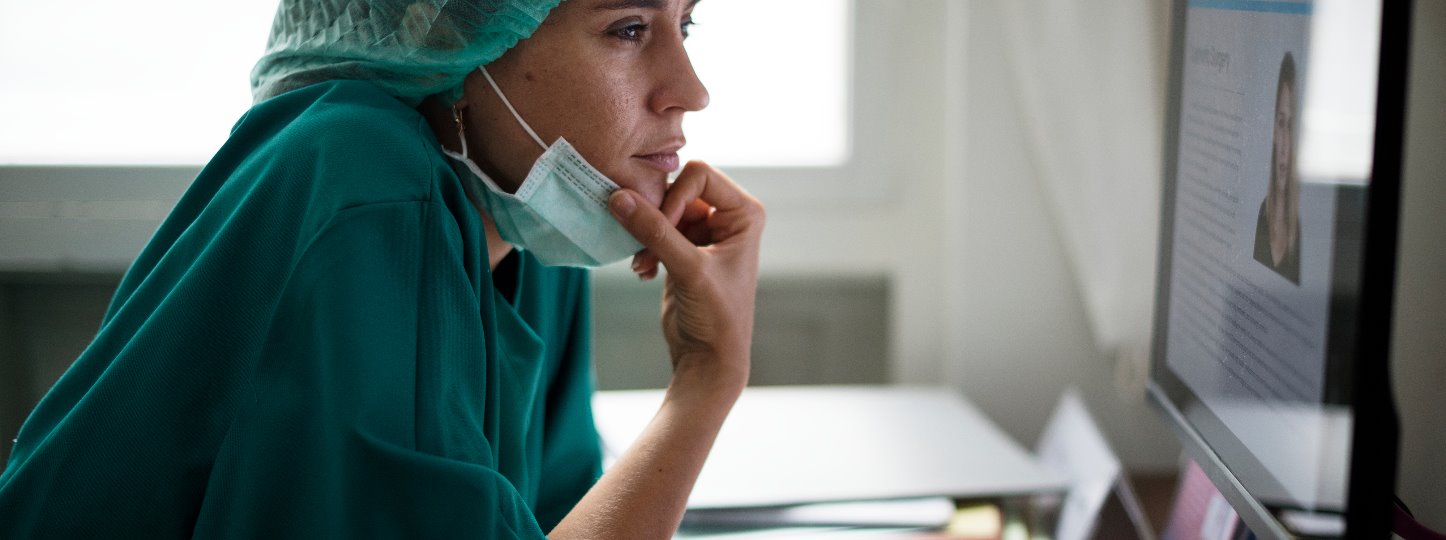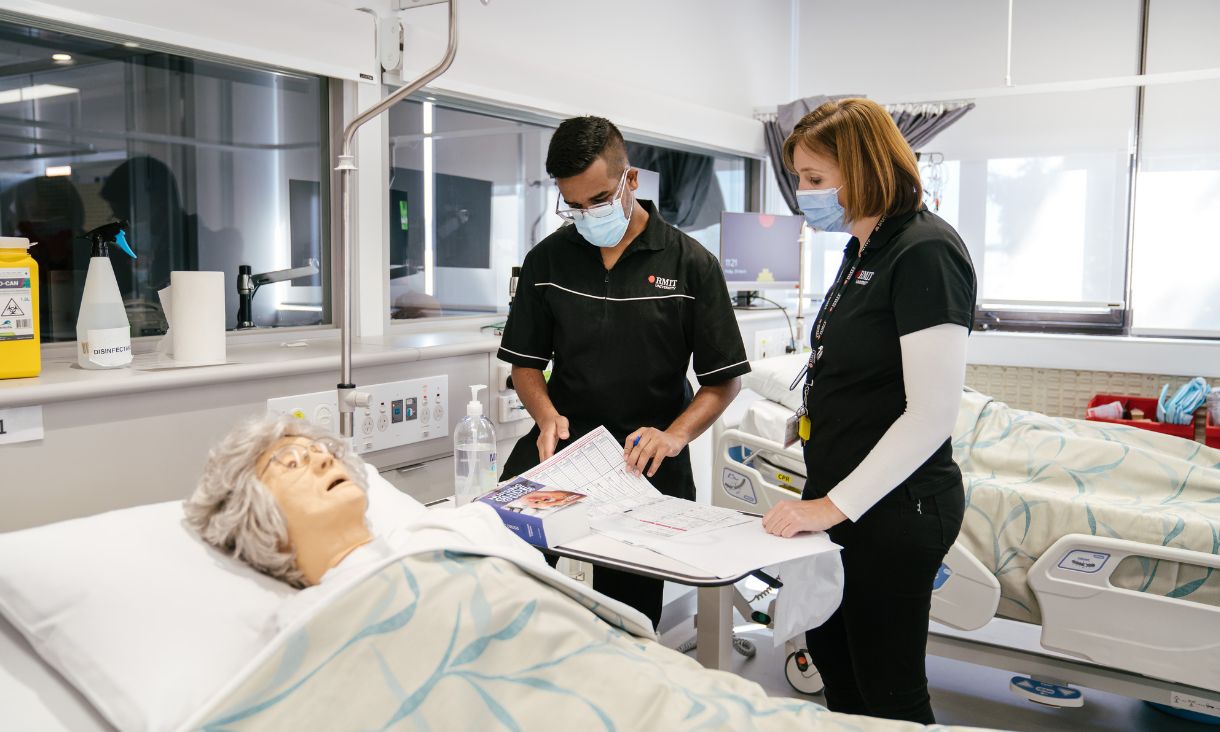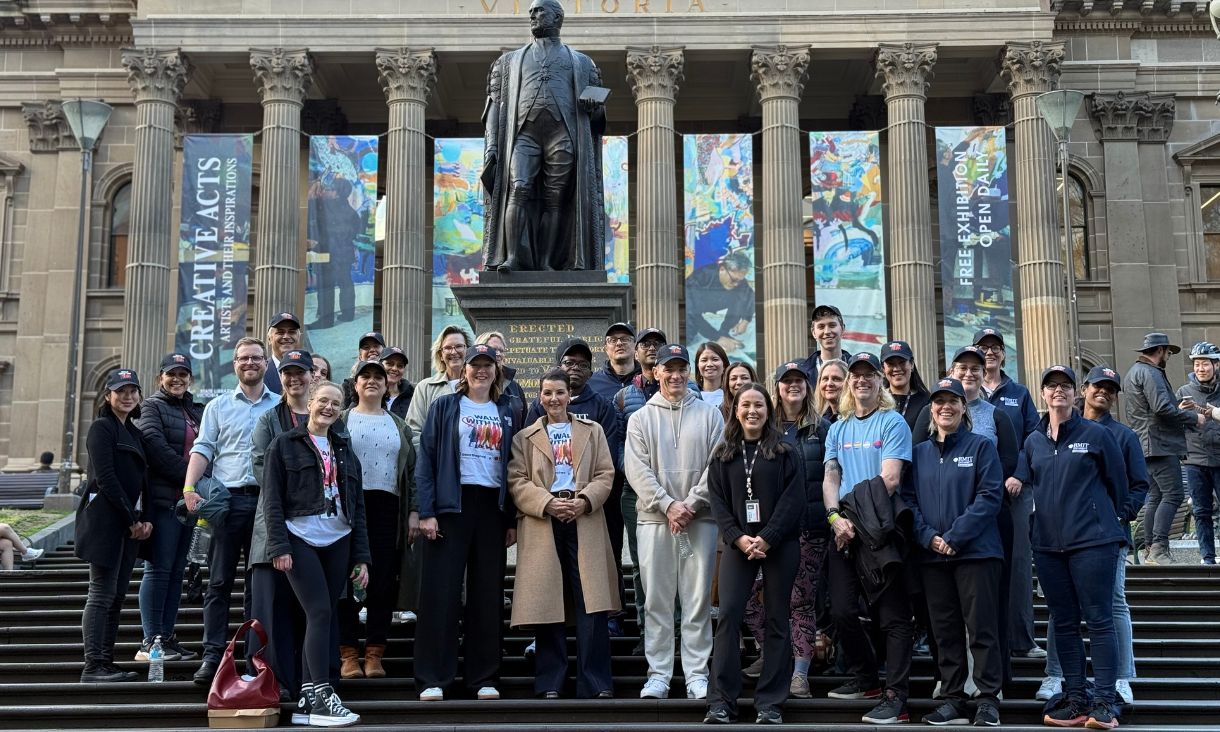RMIT Online and the Digital Health Cooperative Research Centre (CRC) have joined forces to create the three micro-credentials in digitally enabled healthcare, in partnership with Queensland Health, Canteen, Telstra Health and RMIT’s Health Transformation Lab.
RMIT Online CEO Helen Souness said the courses represent a vital step forward in delivering healthcare training that will enhance patient care and unlock transformative capabilities in the growing sector.
“The healthcare sector employs more than one in 10 working Australians and is going to continue to grow, with another quarter of a million jobs being created between now and 2024.
“Currently skills gaps in key areas like digital health, change management and remote patient care are holding us back. These skills are critical to enable innovation and transformation in the healthcare sector, so we need to address all three at once.
“We have designed our courses with the understanding that people, not technology, are at the core of effective healthcare and that new technologies can improve outcomes and equity in access to care.”
Growing demand for digital healthcare
As increased demand and the COVID-19 pandemic put health systems worldwide under pressure, the need to adopt technologies that deliver better patient care and curb health costs has become critical.
Wearable sensors to monitor chronic conditions, Artificial Intelligence (AI) assistance in detecting cancer earlier, and algorithms that assess the risk of diabetes are among the advancements made possible by digital health technologies. They also allow patients to be treated closer to home, with a greater range of telehealth services and the capacity to perform treatments like dialysis in-home.
Trials in digitally enabled healthcare have found significant scope for digital health practices to improve patient outcomes and lessen loads on service providers.
A CSIRO trial of telehealth monitoring for patients with chronic conditions showed a 53 percent reduction in the number of hospital admissions and a 40 percent reduction in mortality, with the Australian Digital Health Agency identifying the need to embed digital practices in healthcare workforce training as crucial.
New digital health micro-credentials
Each course will include a blend of learning and coaching by industry mentors.
The online courses will run for six weeks, allowing participants to make an immediate impact in their own workplace and more broadly.
Technology Enabled Care will equip clinicians working closely with patients to understand, assess and integrate new technologies and services into their practice safely, to improve preventative health outcomes where access to services is limited.
Healthcare Design will equip design thinkers and leaders in healthcare and social services with the capacity to reimagine and design prototypes of new digitally enabled healthcare services that incorporate good healthcare design principles.
Digital Health Strategy and Change will prepare clinical and professional healthcare leaders to innovatively and digitally enable transformations within their organisation.
The courses will be fully credentialed by RMIT University. Find out more about RMIT Online or the Digital Health CRC at digitalhealthcrc.com
Additional spokesperson quotes
Digital Health CRC Education Manager, Dr Melanie Haines:
“The pace of technological change is unrelenting, which means we need learning formats that enable healthcare professionals to adopt and adapt quickly.
“Micro-credentials are the perfect answer and we are pleased to not only be partnering with RMIT Online in the delivery of these courses, but to be sponsoring 70 places.
“These courses will equip Australia’s healthcare professionals and organisations with the capability to integrate technologies such as apps, wearables, internet-enabled devices, virtual/augmented reality, AI and data analytics to improve delivery of patient care.
“We hope following the success of this trial, we can expand opportunities for healthcare professionals to obtain digital health micro-credentials in the future.”
Queensland Health Acting Deputy Director-General and Chief Clinical Information Officer, Professor Keith McNeil:
“It is imperative for industry to work with education to quickly upskill health workers in critical innovations happening across the sector.
“In this environment, harnessing the capability for innovation to enhance patient care, transform health delivery and preserve healthcare capacity while creating better health and wellbeing outcomes is essential.
“Queensland Health is pleased to partner with RMIT Online and DHCRC to be supporting the healthcare workforce of today and into the future.”
Story: Jennifer Graham







